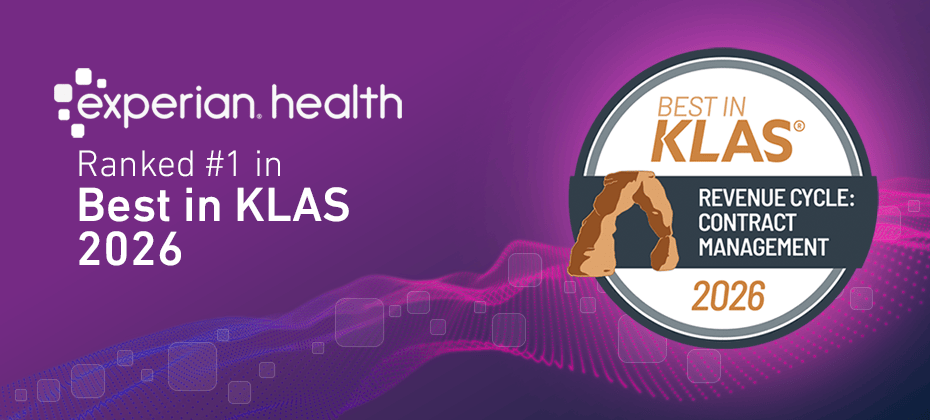
Reimbursement issues in the healthcare industry are complex, but reimbursement is essential for healthcare organizations. Proper reimbursement allows providers to run operations efficiently and deliver consistent, high-quality patient care. It also enables organizations to invest in technologies that advance their operations.
Read on to learn more about the causes of reimbursement issues and discover the strategies, tools and automated solutions healthcare providers can use to address them.
Understanding reimbursement issues in healthcare
Healthcare organizations often provide care without upfront payment and hope that healthcare payers will fulfill their obligations and settle their bills. This system impacts all healthcare stakeholders and influences the quality and timeliness of patient care. It also affects staff productivity, satisfaction, hospital operational efficiency, cash flow and bottom line.
However, the reimbursement system is also fraught with long-standing challenges that complicate financial growth for healthcare organizations. Claim denials, changing reimbursement landscape and payer rules, prior authorization hurdles and staffing shortages complicate reimbursement issues in healthcare and cost hospitals billions of dollars in administrative complexities.
Key challenges of healthcare reimbursement concepts
Key challenges that fuel reimbursement issues and impact hospital cash flow include:
- High patient volumes and submission of inaccurate claims
- Complex payer policies, compliance issues and poor communication in payer-provider partnerships
- Increasing claims denials leading to nonpayment
- Staff shortages and lack of training
- Slow adoption of data, analytics and automation solutions
Causes of reimbursement issues
By identifying the causes of reimbursement issues that result in delays and nonpayments, healthcare organizations can develop effective strategies to tackle them. Here is a closer look at why reimbursement issues commonly occur:
Rising claim denials
Claim denials lead to delayed or lost reimbursements, which amount to millions of dollars in lost revenue for hospitals. The Journal of AHIMA reports that claim denials cost hospitals $5 million, annually. According to Experian Health’s State of Claims report, 38% of healthcare providers experience claims being denied 10% of the time, or more. 67% of respondents also agreed that reimbursement times are increasing.
A report from the American Hospital Association noted that Medicare Advantage plan payment denials increased by 56% for the average health system between January 2022 and June 2023. These denials led to a 28% decline in cash reserves—even as maintenance expenses rose by 90% and other operational costs increased by up to 35%.
With increasing claim denials, rising operational costs and a drop in cash reserves, revenue cycle leaders are under pressure to address costly claim denials.
Staffing shortages and lack of appropriate training
Challenges with staffing shortages and inadequately trained staff to handle revenue cycle management processes can lead to reimbursement issues for healthcare organizations. New research, published daily, shows that healthcare organizations are grappling with staffing shortages and the associated consequences.
Experian Health’s recent survey, Short Staffed for the Long-Term, identified staffing shortages as being strongly linked with increasing claims denial and declining reimbursement rates in healthcare. In fact, nearly all survey respondents noted that staff shortages have affected their organization’s revenue opportunities.
According to 70% of the survey respondents, staff shortages are seriously impeding payer reimbursement, and 83% report that it has become increasingly challenging to follow up on late payments or provide assistance to patients facing financial difficulties. In another Experian Health survey, The State of Patient Access, 2023: The Digital Front Door, 87% of providers report that healthcare staffing shortages are worsening healthcare access.
Additionally, inadequate and lack of up-to-date training in handling medical coding, eligibility verification, patient estimates and other necessary administrative processesfor preparing and submitting clean claims and receiving reimbursement hamper the efficiency of existing staff.
Complex prior authorization process
When healthcare organizations fail to obtain prior authorization in cases where it is needed, they can inadvertently face healthcare reimbursement issues. Prior authorization is a cost-control mechanism used by payers to confirm the justification for costly healthcare services. When prior authorization is required, providers must receive approval from payers before their services can be eligible for reimbursement.
Prior authorization is a heavy and time-consuming administrative burden. According to the 2023 AMA prior authorization survey, every healthcare physician completes 43 prior authorizations per week on average—a process that takes about 12 hours. Worse, more than a quarter of providers report that prior authorizations are often or always denied.
The complex prior authorization process leads to treatment delays, abandonment and reimbursement hassles. Many denials occur after patients have already started receiving care, or or when required care is only partially covered, causing further challenges.
Changing reimbursement policies and payer rules
Healthcare providers unintentionally fall behind in staying updated on critical reimbursement policies. The reasons vary, but typically include shifts in the reimbursement landscape, inconsistencies in payer rules, unannounced rule changes and poor communication in payer-provider relationships.
Complex and ever-evolving payer policies also result in substantial losses for hospitals. Hospital revenue and resources, staff productivity and satisfaction and patient experience all bear the brunt. Hospitals relying on manual processes instead of automated software solutions to manage reimbursement hurdles are often hit even harder.
Strategies to resolve healthcare reimbursement issues
Organizations working to achieve impactful reimbursements can adopt strategies for success, including:
Adopt AI and automation to prevent claim denials
In the State of Claims 2024 report, only 31% of providers reported using some form of automation and/or AI technology. Automated solutions provide a time-and-resource-efficient approach for healthcare organizations to streamline claims and revenue cycle management.
For example, ClaimSource® is a single software solution used to automate the claims management process and improve reimbursement rates. This solution automates tasks crucial to claims approval and reimbursements, like eligibility verification and coding, making the process faster and error-free.
Experian Health’s AI Advantage™ is a prime example of an AI-powered solution that works seamlessly with automation solutions to provide organizations with the greatest potential for reimbursement. It offers a two-in-one avenue relevant before claims submission and after claims denial. Organizations can reduce denial rates with Predictive Denials and predict high-value denials that improve reimbursement rates with Denials Triage.
Implementing AI and automation can help strengthen financial performance and increase reimbursement rates for healthcare organizations. When integrated with AI-powered solutions that provide prediction and accuracy, automation takes the claims management burden off the shoulders of overworked staff. Staff can then redirect their efforts towards activities that enhance patient experience, care quality and outcomes.
Automate prior authorizations
Prior authorizations can be time-consuming and expensive, especially with manual, error-prone systems. According to a paper published in the Journal of Perspectives in Health Information Management, 85% of providers consider the burden associated with prior authorization to be “high or extremely high.” Yet, many providers still rely on manual processes, which further complicate prior authorizations and create stumbling blocks to getting reimbursements.
Instead, healthcare organizations can embrace automated solutions, like Experian Health’s Prior Authorizations solution, to streamline this process. This solution automates the prior authorization inquiry and submission process and helps providers achieve prompt payments, ultimately ensuring predictable revenue cycles. By adopting automation, they save staff time and improve operational efficiency, which also improves care delivery and elevates the patient care experience.
Equip staff with technology solutions
Healthcare billing teams can also effectively tackle critical aspects that increase the potential of securing reimbursements using technology solutions designed to help boost productivity without increasing headcount. These include:
- Denial Workflow Manager to eliminate the need for manual review of claims status and remittance advice, resulting in reduced denials
- Enhanced Claim Status eliminates manual follow-up tasks and lets providers respond early and accurately to pended, returned-to-provider, denied, or zero-pay transactions before the Electronic Remittance Advice and Explanation of Benefits are processed
- Patient Payment Estimates to provide better price transparency so patients are empowered to make better decisions and healthcare providers get paid faster
Overcoming reimbursement issues for better healthcare outcomes
Reimbursement issues pose many challenges for today’s healthcare organizations. They burden hospitals with excessive administrative work, cause delays in healthcare delivery and put the patient experience in the backseat. They also impact healthcare provider satisfaction and productivity and worsen hospital financial performance.
Empowering staff with automated solutions enables them to swiftly and accurately manage the different fragments leading to reimbursement. This can result in improved healthcare outcomes and organizational profitability.
Learn more about how Experian Health’s Claims Management and Clearinghouse solutions (ranked #1 Best in KLAS 2024) can help organizations secure reimbursements that boost their bottom lines.


